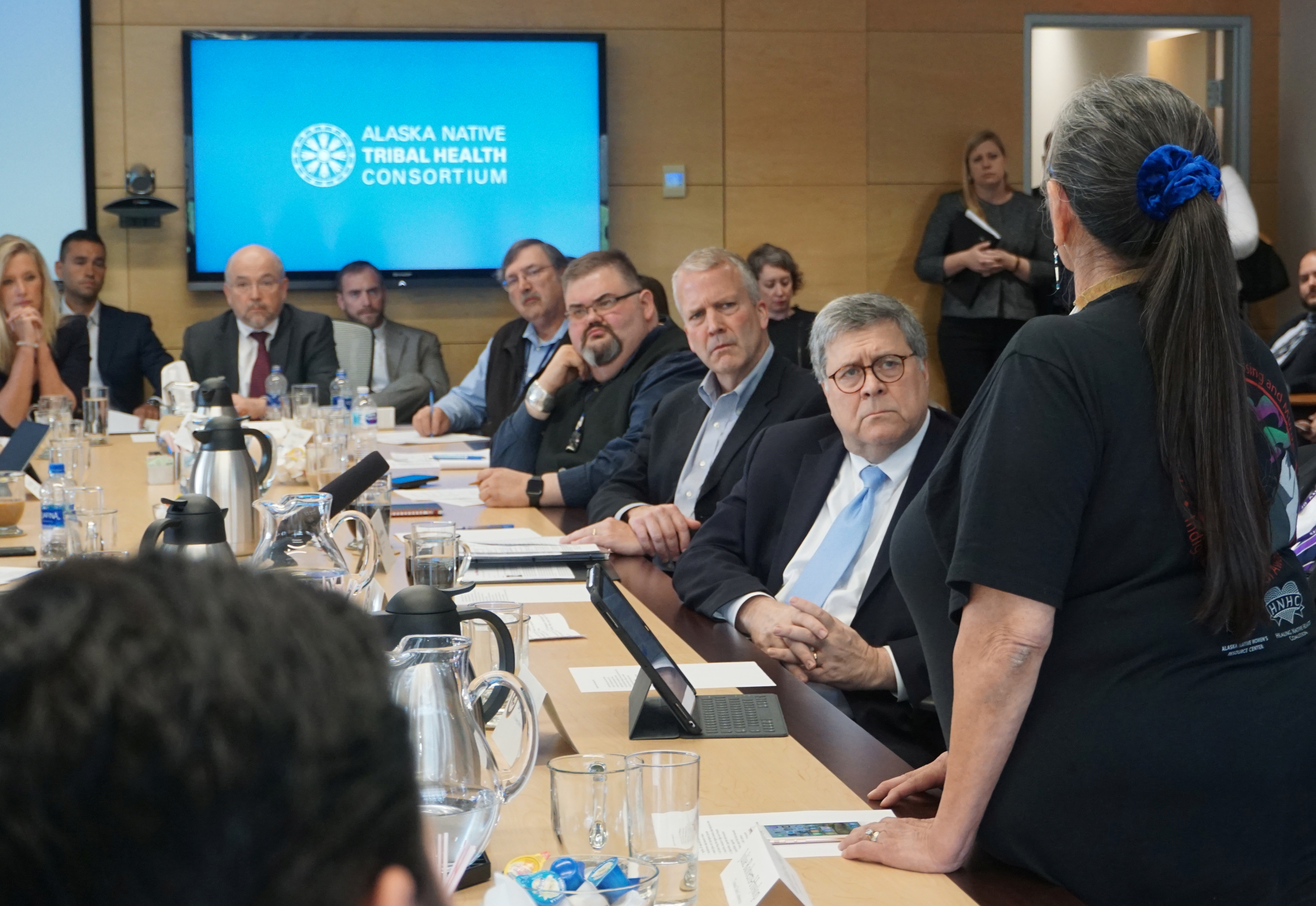Alaska Native leaders seek U.S. attorney general’s help to fight rural crime
Police are scarce or absent in many rural Alaska communities, which have seen high rates of violent crime, especially against women.

ANCHORAGE, Alaska — U.S. Attorney General William Barr on Wednesday promised Alaska Native leaders he would work to strengthen law enforcement in the state’s rural areas hit by alarmingly high rates of violent crime.
Alaska Native leaders say police protection is scarce in their communities.
“I’ve always been mindful that it’s the responsibility of the attorney general to serve all the people of the United States, in every state, in every community,” Barr said at the meeting in Anchorage.
“I’ve always thought it was critical that our legal system work for every American and that no one is left out of that.”
The meeting was held on the day U.S. Special Counsel Robert Mueller appeared before reporters in Washington at the Department of Justice, which Barr oversees, to discuss his investigation of Russian interference in the 2016 election.
Barr, who faces criticism from Democrats for his decision to clear President Donald Trump, a Republican, of criminal obstruction of justice after Mueller wrapped up his effort, is leading a review of the origins of the Russia investigation.
The topic of the investigation did not come up at Barr’s meeting in Alaska and he took no questions from reporters.
Barr’s trip fulfilled a promise given months ago to Alaska’s two U.S. senators, who had pressed the attorney general to visit the northernmost U.S. state and its crime-plagued rural areas.
From Anchorage, Barr was set to travel on Thursday to Galena, an Athabascan village on the Yukon River, and on Friday to Bethel, a Yup’ik hub community in southwestern Alaska, and to a smaller Yup’ik village nearby.
Though Alaska Natives make up about a fifth of the state population, Native women account for more than half of the victims of reported sexual assaults, state reports show.
“The statistics speak for themselves,” said Leonard Wallner of Chugiachmiut, a consortium of tribes in the Prince William Sound and Gulf of Alaska area.
Cases of domestic violence were 10 times the national average, and those of sexual assault were 12 times the national average, he added.
“Public safety is non-existent in many Alaska Native villages,” Wallner said.
The Native leaders, who met Barr at the headquarters of the Alaska Native Tribal Health Consortium, also blasted state budget cuts they said would put Alaska Natives at risk.